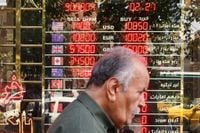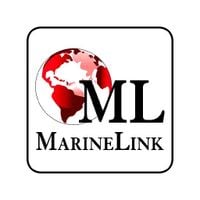On October 9, 2025, the United States Treasury Department unleashed a sweeping new wave of sanctions targeting Iran’s oil sector, with a sharp focus on Chinese companies and individuals allegedly facilitating Tehran’s energy exports. The move, described by officials as the fourth major round of such measures, marked a significant escalation in Washington’s ongoing campaign to choke off one of Iran’s most vital sources of revenue.
At the heart of the latest sanctions are two Chinese companies: the Rizhao Shihua Crude Oil Terminal Co., a unit linked to the state-owned energy giant Sinopec, and the independent Shandong Jincheng Petrochemical Group Co., often referred to as a "teapot refinery." According to Reuters, the Treasury Department accused Rizhao Shihua of handling about 9% of China’s crude imports and serving as a key conduit for Iranian oil, including accepting more than a dozen tankers from the so-called "shadow fleet"—vessels that operate under the radar to evade international restrictions. Among these tankers, names like Kongm, Big Mag, and Voy featured prominently, collectively carrying several million barrels of Iranian crude.
Shandong Jincheng Petrochemical Group, meanwhile, was cited for purchasing millions of barrels of Iranian oil since 2023, despite existing sanctions. The Times of Israel reported that the facility, based in Shandong Province, represents one of the largest buyers of Iranian petrochemical products by both volume and value. The U.S. also sanctioned Jiangyin Foreversun Chemical Logistics, designating it as the first China-based terminal to receive Iranian-origin petrochemical products, according to the State Department.
All told, the Treasury blacklisted more than 50 individuals, firms, and vessels, while the State Department added around 40 more to the list, including company leadership and major buyers of Iranian products. In total, about 100 individuals and entities found themselves in Washington’s crosshairs this round—a figure that underscores the Biden administration’s determination to dismantle what it sees as the machinery enabling Iran’s energy exports and, by extension, its controversial nuclear and missile programs.
“The Treasury Department is degrading Iran’s cash flow by dismantling key elements of Iran’s energy export machine,” Treasury Secretary Scott Bessent declared in a statement carried by multiple outlets. The action, Bessent said, was aimed at “dismantling the key elements of Iran’s energy export machinery.” The measures mean any “property and interests in property” held by the sanctioned parties in the United States, or controlled by U.S. citizens and companies, are now blocked and must be reported to authorities. Companies owned directly or indirectly by any of the sanctioned individuals are also included, according to the Times of Israel.
The U.S. government’s rationale for the crackdown is clear. Officials believe that Iran’s oil and petrochemical revenues help finance not just the country’s nuclear and missile programs, but also its support for militant proxies across the Middle East. “So long as Iran attempts to generate oil revenues to fund its subversive activities, the United States will act to counter and to promote accountability for Iran and its partners in sanctions evasion,” said State Department principal deputy spokesperson Tommy Pigott, as quoted by The Times of Israel.
Yet the timing of the sanctions is notable. They arrived less than two weeks after the United Nations announced “snapback” sanctions on Iran, deepening Tehran’s isolation on the world stage. At the same time, a ceasefire and hostage agreement between Israel and Hamas was being brokered—an effort that, if successful, could mark the closest the two sides have come to ending a war that has drawn in regional powers including Iran, Yemen, and Lebanon. At a White House cabinet meeting following the sanctions announcement, President Donald Trump told reporters that Iran had indicated its support for the Gaza ceasefire and that the U.S. would work with Tehran. “We’d like to see them be able to rebuild their country too, but they can’t have a nuclear weapon,” Trump said, according to Reuters.
Despite the mounting pressure, Iran’s oil exports have remained remarkably robust. United Against a Nuclear Iran, a group that tracks the country’s petroleum shipments, reported that in September 2025, Iranian oil exports hit a year high of approximately 63.2 million barrels, with an estimated value of $4.26 billion. The organization attributed the spike in part to stockpiling ahead of the resumption of U.N. sanctions, suggesting that buyers may be racing to secure supplies before enforcement tightens further.
China’s response has been predictably defiant. Liu Pengyu, spokesperson for the Chinese embassy in Washington, told Reuters in an email: “The United States should stop interfering with, and undermining, the normal economic and trade cooperation between China and Iran. China will take all necessary measures to resolutely safeguard the legitimate rights and interests of Chinese companies.” Neither the Chinese embassy in Washington nor Iran’s mission to the United Nations in New York responded to requests for further comment, according to Reuters.
The new sanctions are part of a broader “maximum pressure” campaign that has seen hundreds of individuals, companies, and vessels punished for their links to Iran’s energy sector since President Trump’s return to office in January 2025. The Times of Israel notes that this is the fourth set of sanctions specifically targeting China-based refineries, reflecting Washington’s frustration with Beijing’s continued appetite for Iranian oil despite repeated warnings.
For the targeted companies, the consequences are immediate and severe. Any assets in the U.S. are frozen, and American citizens and businesses are generally prohibited from doing business with them. The sanctions also extend to any companies owned 50% or more by a sanctioned entity, a measure designed to prevent circumvention through shell corporations or indirect holdings.
Yet, as the numbers show, Iran’s oil trade remains resilient. The shadow fleet of tankers—operating under obscure ownership, frequently changing flags, and often sailing with their transponders switched off—continues to ferry millions of barrels to willing buyers, especially in Asia. The U.S. Treasury and State Departments have signaled their intent to keep tightening the net, but for now, the cat-and-mouse game between sanction enforcers and evaders shows no sign of abating.
As the geopolitical chessboard shifts in the Middle East and beyond, the latest sanctions underline the enduring complexities of enforcing economic pressure in a globalized world. With each new round, Washington hopes to turn up the heat on Tehran and those who do business with it, but the outcome remains anything but certain.


